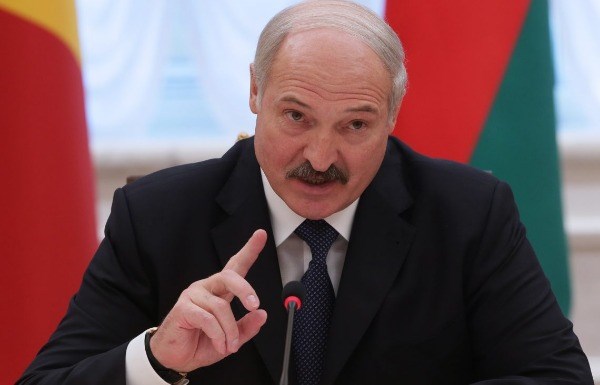Lukashenko threatens to deploy ‘super-nuclear’ weapons in Belarus
Belarus is ready to deploy in its territory not only nuclear, but also advanced "super-nuclear" weapons in the event of a threat from the country's adversaries, said Belarusian dictator Alexander Lukashenko at the Osipovichi training ground while attending the Russian-Belarusian military exercises Allied Resolve–2022.
"If necessary, if such stupid steps are taken by our opponents and adversaries, we will deploy not only nuclear weapons, but also super-nuclear, advanced ones, in order to protect our territory," Lukashenko said.
He added that if there are no threats from unfriendly countries, then nuclear weapons in Belarus "will not be needed for 100 years."
Lukashenko also said that he could deploy Russian S-400 anti-aircraft missile systems near Minsk. He explained that the S-400 missile systems are already in Belarus and the Belarusian military is mastering them.
"If necessary, we will put a couple more systems. And we don't need more. This is a weapon that "sees" at a distance, I think, at 600 kilometers. Where will we put it? 600 kilometers target detection. We are talking about the purchase of several such systems. We can put them somewhere to the east of Minsk or near Minsk and we will see what is being done in Kyiv, behind Warsaw and so on," Lukashenko explained.
The Belarusian dictator also said that Minsk can recognize the independence of the Donetsk and Luhansk people's republics (DPR and LPR), if Russia does it. "We will agree with Putin on what we should do to make it better for Russia and for Belarus. But it will be a joint decision," he stressed. He also promised to provide Russia with any, including military, support in the event of an escalation in the Donbas.
After the collapse of the USSR, Belarus joined the Treaty on the Non-Proliferation of nuclear weapons (NPT). Russia, the United States and Great Britain gave Minsk security guarantees.
In 2010, Lukashenko called the country's nuclear disarmament a "cruel mistake." "I had to sign this treaty because there was nowhere to go. I was pressured by both Russia and the Americans - withdraw, because they [the previous leadership of Belarus] promised," he said, noting that nuclear weapons were "an expensive commodity that we eventually had to sell at a good price."
